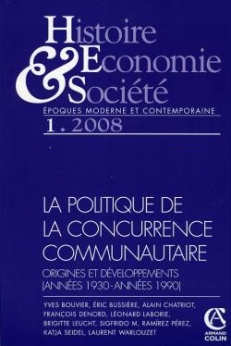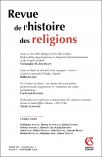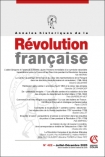
Histoire, économie & société (1/2008)
Numéro épuisé
Recevez les numéros de l'année en cours et accédez à l'intégralité des articles en ligne.
La réglementation des ententes économiques constitue un des objets majeurs d’études juridiques et de discussions de politique économique durant l’entre-deux-guerres et pose en fait la question d’une régulation de la concurrence. Durant les années vingt la question première consiste à adapter une législation héritée de 1810 et totalement décalée par rapport à la réalité industrielle du XXe siècle. Dans les années trente, la double question du contrôle de l’État et de l’organisation de la profession est dominante. Après 1945 et jusqu’en 1953, c’est le contrôle des prix et les formes de politique économique qui passent au premier plan. Durant toute cette période, la question de la concurrence a rarement été formulée comme telle, mais tous les thèmes majeurs qui se posent à l’échelle française et européenne après 1960 ont été abordés : type de contrôles et de sanctions, types d’institution en ayant la charge, formes et obligation de la publicité, place des consommateurs et des syndicats, dimension internationale aussi bien sûr. La difficile stabilisation de la législation sur ces questions est aussi révélatrice des dysfonctionnements des régimes politiques dans la première moitié du XXe siècle en France.
The regulation of economic “ententes” constitutes one of the major objects of juridical studies and the discussions of economic policy during the interwar period and asks in fact the question of competition policy. During the twenties the first question consists in adapting a legislation inherited of 1810 and completely brought forward in comparison with the industrial reality of the XXth century. In the thirties, the double question of the control of the State and the organization of profession is predominant. After 1945 and until 1953, it is the price controls and forms of economic policy that pass to the first plan. During all this period, the question of competition was seldom formulated as such, but all major topics which settle in the French and European ladder after 1960 being approached : type of controls and sanctions, type of institutions to control these “ententes”, forms and obligation of advertising, place of the consumers and labour unions, international dimension. The difficult stabilization of legislation on these questions also reveals disfonctionnements of political regimes in the first half of the XXth century in France.

